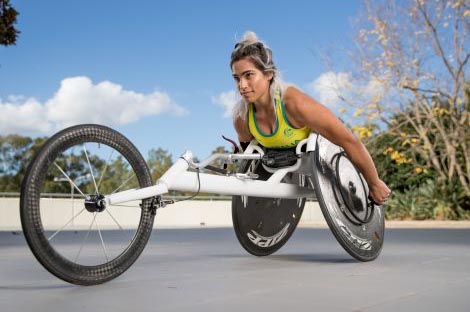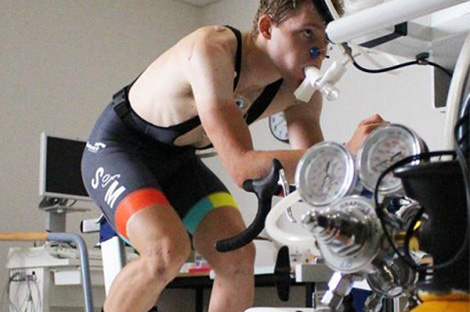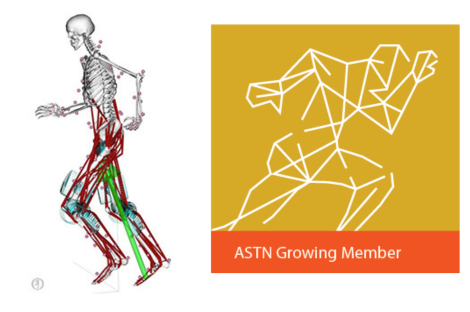We're focused on a sporting future
Griffith research covers all aspects of sport, from performance to participation and injury management to recovery. Our world-leading sports scientists work within cutting-edge facilities to develop new knowledge that benefits sportspeople and the general public.
Performance and Participation

Sport and Gender Equity
The purpose of Sport and Gender Equity @ Griffith research hub is to lead innovative and impactful research that advances gender equity in sport through a multi-disciplinary research hub connecting scholars, practitioners, athletes and advocates.
The research hub aims to:
- contribute to knowledge and practice that addresses the complexity of gender inequality and diversity within and beyond sport
- engage in collaborative and innovative research to advance opportunities for women and girls to lead in all aspects of sport
- educate for sustainable change in classrooms, organisations and the public sphere to transform sport cultures and gender relations

Female Sports Performance and Injury Prevention
Sports physiology, performance and injury prevention specific to the female athlete is a unique and specialist area of research This applied research allows evidence supported, female specific practices to be implemented into both the individual female athlete and female sporting teams. Women in sport is a key area of research for Griffith University, allowing Griffith researchers to form remarkable industry partnerships with state and national institutes and academies, professional sporting teams, national sporting bodies and Australian representative teams.

Sport Science and Performance
Sports physiology and performance covers three main areas of research, expanding into the field of training, nutrition and environment. With strong partnerships in industry and state-of-the-art equipment this area of research is advancing rapidly.

Sports Technology
Advance Design Prototyping Technologies Institute (ADaPT) underpins advanced computational modelling including creating the 'personalised digital human' (PDH) is an area of expertise and focus of Griffith researchers.
An extension of the PDH is the 'digital athlete' (DA). The digital athlete is the ultimate partnership between the athlete, coach, SSSM and other expertise. It is a digital clone of an athlete that allows personalised, precise and predictive modelling to advance virtual, multi-disciplinary, real time problem solving to enhance athlete performance.

Sports Nutrition
Dietary factors optimise sports performance and recovery. The optimising human performance research team is focussed on understanding how manipulations to dietary intake can influence the outcome of sport and exercise performance, cognitive function and important activities of daily living, such as driving. The research takes a practical approach to concentrate on strategies that are likely to translate into enhancements in physical and cognitive functioning.
The Aussie Gut project is looking at the role of our gut bacteria in health and disease. The bacteria in our gut are known to outnumber human cells in the body and play important roles in digestion, nutrient production and immune modulation. New evidence suggests your gut bacteria may influence your body mass, metabolism, allergies and respiratory infections.

Psychology
Griffith School of Applied Psychology conducts research into psychological factors that impact sport performance. Researchers examine goal setting, attentional focus strategies, mental skills training, and anxiety reduction techniques as effective approaches to facilitate the development of expertise and enhance performance in competition. Psychological assessments and training strategies are used alongside technologies like eye tracking, virtual reality, and biofeedback.
Women in sport

Sport and Gender Equity
The purpose of Sport and Gender Equity @ Griffith research hub is to lead innovative and impactful research that advances gender equity in sport through a multi-disciplinary research hub connecting scholars, practitioners, athletes and advocates.
The research hub aims to:
- contribute to knowledge and practice that addresses the complexity of gender inequality and diversity within and beyond sport
- engage in collaborative and innovative research to advance opportunities for women and girls to lead in all aspects of sport
- educate for sustainable change in classrooms, organisations and the public sphere to transform sport cultures and gender relations

Female Sports Performance and Injury Prevention
Sports physiology, performance and injury prevention specific to the female athlete is a unique and specialist area of research This applied research allows evidence supported, female specific practices to be implemented into both the individual female athlete and female sporting teams. Women in sport is a key area of research for Griffith University, allowing Griffith researchers to form remarkable industry partnerships with state and national institutes and academies, professional sporting teams, national sporting bodies and Australian representative teams.
Business of Sport

Events
More than just a game? Research has demonstrated that sport and event consumption can impact elements of an individual's social-psychological well-being, but opportunities exist to better understand how, and under which conditions, this occurs.

Sport Management
Sport is widely perceived to generate social benefits. Our research focuses on understanding sport management, events and tourism and the role these industries play in our lives. Through our research, the Department aims to contribute to sustainability, engender corporate social responsibility, influence social and government policies, and promote best practice in our field.
World Class Facilities
Griffith boasts a number of world class research facilities such as: IAAF accredited synthetic athletics track and field facility FINA accredited 50-m Swimming pool Two motion capture laboratories (12 Camera Vicon MX systems, force plates) Instrumented treadmills Wireless EMG systems (Zerowire) Wireless IMU systems (Noraxon) Peripheral Quantitative Computed Tomography (pQCT) Dual-energy X-ray absorptiometry (DXA) Ultrasound systems (2D, 3D, elastography) Computational and medical image processing software (Matlab, C/C++, Mimics, OpenSim, Vicon Nexus, CMISS, CEINMS) Isokinetic dynamometers (Biodex)
Griffith Experts
Griffith Experts is a complete directory of Griffith researchers. You can explore our research experts by name, centre, project or publication.
